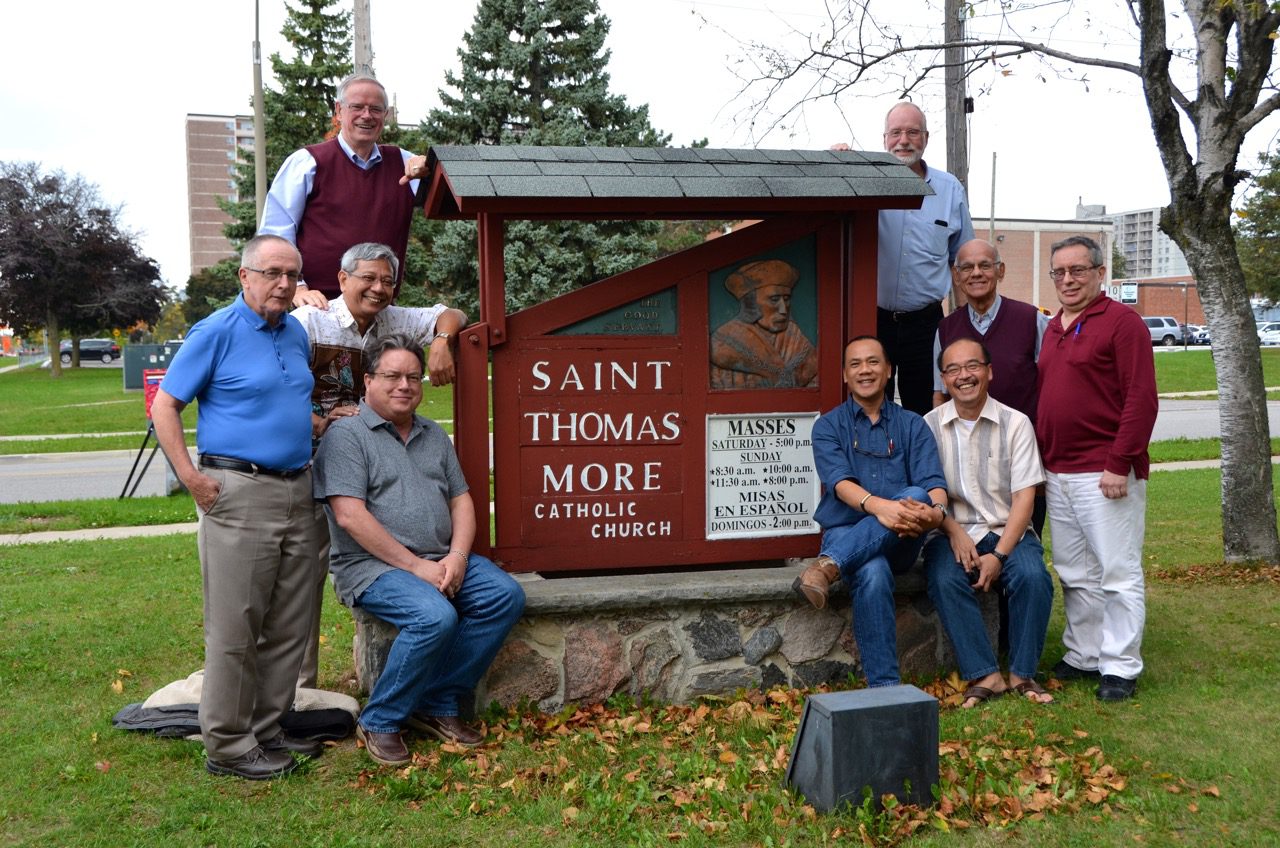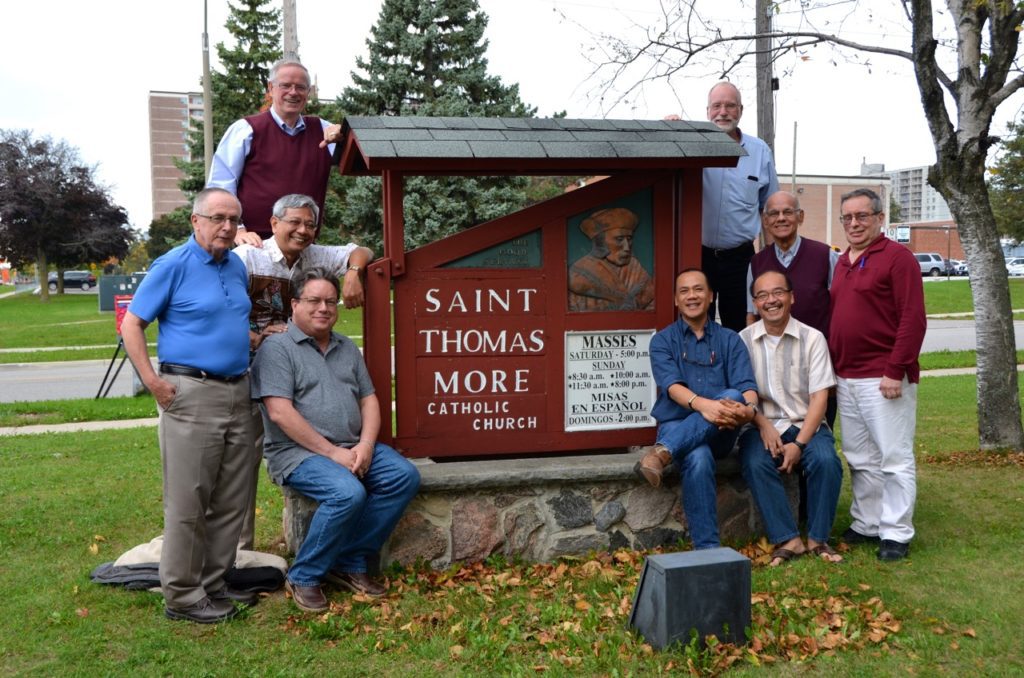
St. Thomas More parish in suburban Toronto was a fitting backdrop for the October 18 meeting of the US and Canadian administrations. It is an immigrant parish with over 40 nationalities represented among its ranks ministered to by an international team of SCJ priests: Fr. Willyans Prado Rapozo (Brazil), Fr. Giovani Pontes (Brazil) and Fr. Aegidius Warsito (Indonesia).
As with the last meeting of the councils in May, migration and internationality were topics that repeatedly rose to the surface of discussions. During the opening roundtable, updates included news of a new pastoral team in Montréal made up of SCJs from Cameroon and Congo, ministering to a cluster of three French-Canadian parishes.
Fr. Christianus Hendrik, originally from Indonesia, spoke of his efforts to share Dehonian spirituality among the Native American and Anglo people to whom he ministers in South Dakota. Fr. Quang Nguyen, vocation director of the US Province, noted the variety of cultural backgrounds represented in those discerning a vocational call to the Priests of the Sacred Heart. He himself is an immigrant from Vietnam.
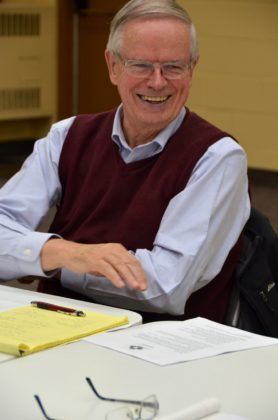
Fr. John van den Hengel talked about the Syrian refugee family that the Ottawa community is sponsoring. Working with volunteers from the community’s Sunday group, as well as from Resurrection of Our Lord parish, SCJs are financially supporting the family as it resettles, but more importantly, accompanying them in everything from filling out healthcare forms to helping them simply getting a sense of their new city. The first member of the family to arrive stayed with the SCJ community on Daly until the family’s apartment was available.
“Giving money is the easy part,” said Fr. John in regards to the community’s efforts. “The investment of time, being present and truly accompanying, welcoming the refugees is the greater and more necessary commitment.” He speaks from first-hand experience: Fr. John, as well as three other members of the Ottawa SCJ community, are immigrants from the Netherlands.
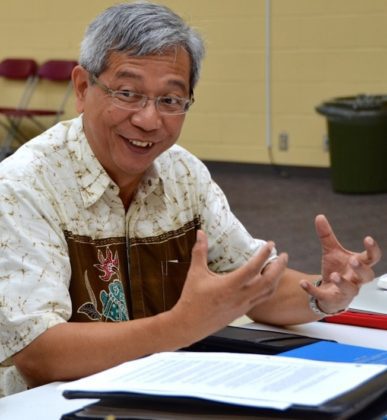
Both councils talked about their responses to the General Council’s request that each entity create a long-range plan, focusing on issues such as community life, ministerial commitments and finances. The Canadian plan looks at the region over the next 10 years; the US council’s spans the next five years, until the end of the current general administration. Each response addresses issues related to internationality and migration including a commitment to international Dehonian communities and to the needs of migrants and the displaced.
One of the focus points of the US response is Sacred Heart Seminary and School of Theology; the council hopes to strengthen the presence of the Dehonian charism in the seminary. This too is a moment for internationality as the US Province looks beyond its borders to seek a candidate to serve as rector. The rector must not only have the academic qualifications to serve, but also a commitment to the Dehonian charism and a desire to share it with others. Fr. Ed Kilianski said that he hopes that SHSST can be of greater service to the Church in the United States and to the worldwide congregation.
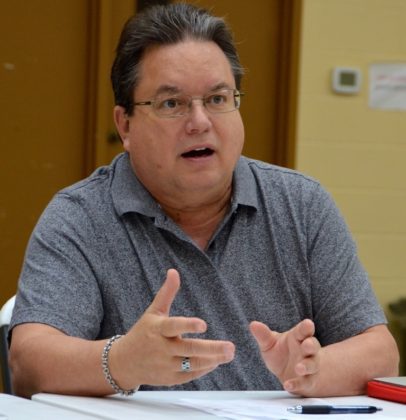
Other topics covered at the meeting included the growth of the Dehonian Associates program and future possibilities for both Canada and the United States, the 2017-18 North American Dehonian retreats, efforts in youth ministry, the March 2017 workshop for local superiors, the Dehon Study Center, and the establishment of a North American Theological Commission which will have as its first task seeking the input of SCJs in Canada and the US on the General Theological Commission’s preparation of the 2017 theological conference in Indonesia.
Continuing the focus on migration and immigration, the councils heard a presentation by Connie Sorio of Kairos on the issues of migrant workers. Kairos is an ecumenical social justice organization of 11 churches and religious organizations. Fr. Peter McKenna, who works with Becoming Neighbors (an immigrant and refugee support organization based in Toronto) facilitated the presentation.
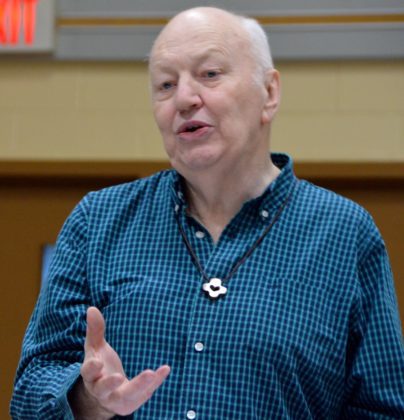
Before concluding their meeting the councils recommitted themselves to the North American Immigration Committee which developed in response to the 2013 North American Conference. The committee will include members of the original group, as well as new faces (lay and SCJ) from the US and Canada.
Collaboration, not just cooperation, has been a growing theme in the meetings of the North American administrations. To ensure that ideas surfaced during the twice-yearly gatherings don’t sit dormant in the minutes of those meetings, an executive committee that includes the two superiors and vice-superiors of each entity was established. This group will be in communication throughout the year to follow-up on topics surfaced at the meetings.
The next meeting of the North American administrations will take place May 15 in Hales Corners, Wis.
